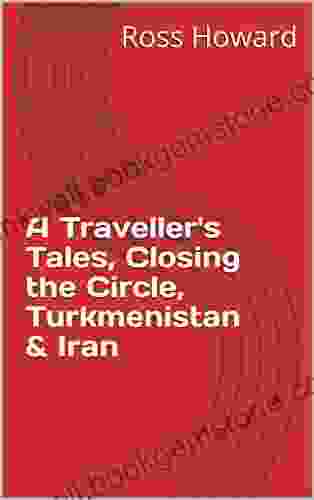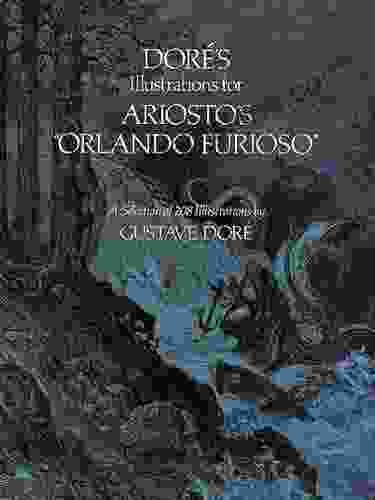The Genius of Language: Exploring the Complexity and Power of Human Communication

4.2 out of 5
| Language | : | English |
| File size | : | 567 KB |
| Text-to-Speech | : | Enabled |
| Screen Reader | : | Supported |
| Enhanced typesetting | : | Enabled |
| Print length | : | 258 pages |
Language is a complex and powerful tool that humans have developed to communicate. It is a way of conveying information, thoughts, and feelings. Language is used in every aspect of our lives, from everyday conversations to complex negotiations.
The ability to use language is a defining characteristic of human beings. It is what sets us apart from other animals and allows us to communicate in a way that is far more complex and sophisticated than any other species.
How did language evolve? How do we acquire language? What are the different ways that language can be used? These are just a few of the questions that linguists, scientists who study language, are trying to answer. In this article, we will explore some of the key concepts of linguistics and discuss the genius of language.
What is Language?
Language is a system of communication that uses words and other symbols to represent ideas and concepts. It is a way of conveying information, thoughts, and feelings. Language is used in every aspect of our lives, from everyday conversations to complex negotiations.
There are many different ways to classify languages. One common way is to divide them into two broad categories: spoken languages and sign languages. Spoken languages are produced by using the vocal cords to create sound. Sign languages are produced by using the hands and body to create gestures.
There are over 7,000 spoken languages in the world today. The most widely spoken language is Mandarin Chinese, which is spoken by over 1 billion people. Other major languages include Spanish, English, Hindi, Arabic, and French.
Sign languages are used by people who are deaf or hard of hearing. There are many different sign languages in the world, each with its own unique grammar and vocabulary. The most widely used sign language is American Sign Language (ASL),which is used by over 500,000 people in the United States.
How Did Language Evolve?
The evolution of language is a complex and fascinating topic. There is no definitive answer to the question of how language evolved, but there are a number of theories.
One theory is that language evolved from gestures. This theory is based on the fact that many animals use gestures to communicate. For example, dogs wag their tails to show happiness and cats arch their backs to show anger.
Another theory is that language evolved from vocalizations. This theory is based on the fact that many animals use vocalizations to communicate. For example, birds sing songs to attract mates and dolphins use whistles to communicate with each other.
It is likely that language evolved from a combination of gestures and vocalizations. Over time, these gestures and vocalizations became more complex and sophisticated, until they eventually evolved into the languages that we use today.
How Do We Acquire Language?
Children begin to acquire language at a very young age. By the time they are two years old, most children can understand and produce simple sentences. By the time they are five years old, they have a vocabulary of thousands of words and can use language to communicate complex ideas.
There are a number of theories about how children acquire language. One theory is that children learn language through imitation. They hear their parents and other adults speaking, and they imitate what they hear.
Another theory is that children learn language through reinforcement. When children produce correct sentences, they are praised or rewarded. This positive reinforcement encourages them to continue producing correct sentences.
It is likely that children learn language through a combination of imitation and reinforcement. They hear their parents and other adults speaking, and they imitate what they hear. They also receive positive reinforcement when they produce correct sentences. This combination of imitation and reinforcement helps children to acquire language quickly and easily.
The Different Ways That Language Can Be Used
Language can be used in a variety of ways. It can be used to communicate information, thoughts, and feelings. It can also be used to persuade, entertain, and inform.
Here are some of the most common ways that language is used:
- To communicate information: Language can be used to convey facts and information. For example, you could use language to tell someone the time or to give them directions.
- To express thoughts and feelings: Language can be used to express your thoughts and feelings. For example, you could use language to tell someone how you are feeling or what you are thinking about.
- To persuade: Language can be used to persuade someone to do something. For example, you could use language to convince someone to vote for you or to buy a product.
- To entertain: Language can be used to entertain people. For example, you could use language to tell a story or to make a joke.
- To inform: Language can be used to inform people about something. For example, you could use language to teach a class or to give a presentation.
The Genius of Language
Language is a powerful tool. It allows us to communicate with each other, to express our thoughts and feelings, and to learn about the world around us. Language is a defining characteristic of human beings, and it is one of the most important tools that we have.
The genius of language lies in its complexity and its versatility. Language can be used to communicate a wide range of thoughts and feelings, from the simplest to the most complex. It can be used to persuade, entertain, and inform. Language is a powerful tool that can be used for a variety of purposes.
The study of language is a fascinating and complex field. Linguists are constantly learning new things about how language works. The more we learn about language, the more we appreciate its genius.
Language is a gift. It is a tool that we can use to communicate, to learn, and to create. Let us all use this gift wisely and for good.
**Image alt attributes:**
* **Child learning language:** A young child is sitting in a high chair, babbling and making hand gestures. * **People communicating:** A group of people are sitting around a table, talking and laughing. * **Language being used to persuade:** A politician is giving a speech, using persuasive language to convince people to vote for him. * **Language being used to entertain:** A comedian is telling a joke, using humorous language to make people laugh. * **Language being used to inform:** A teacher is giving a lecture, using informative language to teach students about a topic.
4.2 out of 5
| Language | : | English |
| File size | : | 567 KB |
| Text-to-Speech | : | Enabled |
| Screen Reader | : | Supported |
| Enhanced typesetting | : | Enabled |
| Print length | : | 258 pages |
Do you want to contribute by writing guest posts on this blog?
Please contact us and send us a resume of previous articles that you have written.
 Best Book
Best Book Page Flip
Page Flip Bookshelf
Bookshelf Literary loom
Literary loom Chapter
Chapter Bookish
Bookish PageTurner
PageTurner Bibliophile
Bibliophile Story
Story Inkwell
Inkwell Bookworm
Bookworm Labyrinth
Labyrinth Plot Twist
Plot Twist Prose
Prose Paperback
Paperback Storyteller
Storyteller Sanctuary
Sanctuary Fiction
Fiction Reading
Reading Chronicle
Chronicle Read
Read Lynne Pickering
Lynne Pickering Malcolm X
Malcolm X Robert Ullian
Robert Ullian Lindsey Pogue
Lindsey Pogue Elise Mahan
Elise Mahan Robert E Kapsis
Robert E Kapsis Emma Block
Emma Block Ethan Casey
Ethan Casey Paul Doyle
Paul Doyle Harry Harrison
Harry Harrison Paper Monument
Paper Monument Kelly Speck
Kelly Speck Jared Blando
Jared Blando Kevin Brownlow
Kevin Brownlow Michael Lakin
Michael Lakin Michael R Pitts
Michael R Pitts Nai
Nai Maurice White
Maurice White Victoria Shearer
Victoria Shearer Sanyika Shakur
Sanyika Shakur Vasily Mahanenko
Vasily Mahanenko Gregory Curtis
Gregory Curtis Richard Goodman
Richard Goodman Elizabeth L Eisenstein
Elizabeth L Eisenstein Emma Gift
Emma Gift Michael Showalter
Michael Showalter Elizabeth Size
Elizabeth Size Scott Eyman
Scott Eyman Leslie Buck
Leslie Buck Daniel Ankele
Daniel Ankele Jackie Barrass
Jackie Barrass Edgar Allan Poe
Edgar Allan Poe Ruth Wilshaw
Ruth Wilshaw Jacob Burckhardt
Jacob Burckhardt Sloan De Forest
Sloan De Forest Tulku Thondup
Tulku Thondup Kassanna
Kassanna Laura A Macaluso
Laura A Macaluso Dennis Banks
Dennis Banks Matt Fox
Matt Fox Elizabeth Mowry
Elizabeth Mowry Edward M Lerner
Edward M Lerner Elena Tchernichova
Elena Tchernichova Christopher Johns
Christopher Johns Kale James
Kale James Matthew Farrer
Matthew Farrer Nichole Perkins
Nichole Perkins Nella Larsen
Nella Larsen Emil Draitser
Emil Draitser Margarita Gokun Silver
Margarita Gokun Silver L L Richman
L L Richman Diane Seuss
Diane Seuss Emily Scherb
Emily Scherb Olga Lengyel
Olga Lengyel Dr Leo Henry Wildeman
Dr Leo Henry Wildeman Jan Kunz
Jan Kunz Prakruti Prativadi
Prakruti Prativadi Nick Hunt
Nick Hunt Wing Over
Wing Over Patrick Youngblood
Patrick Youngblood John Matthews
John Matthews Sergey Skudaev
Sergey Skudaev Luana Luconi Winner
Luana Luconi Winner Elizabeth Stansberry
Elizabeth Stansberry L D Goffigan
L D Goffigan Michael Arndt
Michael Arndt Eric Rickstad
Eric Rickstad Emiliano Zapata
Emiliano Zapata Riad Sattouf
Riad Sattouf Diane Wilson
Diane Wilson E E Knight
E E Knight Karen Redrobe Beckman
Karen Redrobe Beckman Elaine Bertolotti
Elaine Bertolotti Michael Eric Dyson
Michael Eric Dyson Gabriella Contestabile
Gabriella Contestabile Kate Lock
Kate Lock Nan Sanders Pokerwinski
Nan Sanders Pokerwinski Elin Hilderbrand
Elin Hilderbrand Peter Spiegelman
Peter Spiegelman Kate Betts
Kate Betts John Dickie
John Dickie Ralph Kern
Ralph Kern Eloisa James
Eloisa James Greg Simonds
Greg Simonds Derek Murphy
Derek Murphy Julie Kavanagh
Julie Kavanagh Victoria Lewis
Victoria Lewis Christopher Hart
Christopher Hart Ashleynicole
Ashleynicole Paul E Cooley
Paul E Cooley E M Forster
E M Forster Gustave Dore
Gustave Dore Joy Deja King
Joy Deja King Gary K Wolf
Gary K Wolf Language Learning University
Language Learning University Didier Ghez
Didier Ghez Wensley Clarkson
Wensley Clarkson Nicholas Woodsworth
Nicholas Woodsworth Pablo Hidalgo
Pablo Hidalgo Wes Moore
Wes Moore Gina S
Gina S Lea Rawls
Lea Rawls Steve Balderson
Steve Balderson Sarah Pinsker
Sarah Pinsker R S Penney
R S Penney Desmond King
Desmond King Roark Bradford
Roark Bradford Dylan Birtolo
Dylan Birtolo William Dalrymple
William Dalrymple Kurt Meissner
Kurt Meissner Elizabeth Bear
Elizabeth Bear Jim Krause
Jim Krause Neil Baldwin
Neil Baldwin Greg Manning
Greg Manning Bruno Munari
Bruno Munari Taylor Dibbert
Taylor Dibbert Emma Svensson
Emma Svensson Elizabeth Alexander
Elizabeth Alexander William Silvers
William Silvers William V Dunning
William V Dunning Rosecrans Baldwin
Rosecrans Baldwin Rachel Polonsky
Rachel Polonsky Edvard Munch
Edvard Munch Diane Keaton
Diane Keaton Edward Sylvester Ellis
Edward Sylvester Ellis James Joseph
James Joseph Paul Noble
Paul Noble Diane Kochilas
Diane Kochilas Brett Tate
Brett Tate Shaunna Russell
Shaunna Russell Dessy Tsolova
Dessy Tsolova Joey Korenman
Joey Korenman Jamie James
Jamie James Yuri Leving
Yuri Leving Iceberg Slim
Iceberg Slim Rebecca Solnit
Rebecca Solnit Dervla Murphy
Dervla Murphy Mark Twain
Mark Twain Rosemary Mahoney
Rosemary Mahoney Sarah Lentz
Sarah Lentz Mika Tufuga Valai
Mika Tufuga Valai James Dickey
James Dickey Dom Joly
Dom Joly E B Dawson
E B Dawson Matteo Cossu
Matteo Cossu Dr Cecil H H Mills
Dr Cecil H H Mills Peter Lord
Peter Lord Jonathan Sacks
Jonathan Sacks Elizabeth Kendall
Elizabeth Kendall Hadley Freeman
Hadley Freeman Tom Ryan
Tom Ryan L X Beckett
L X Beckett Karen Campbell
Karen Campbell Elena Gorokhova
Elena Gorokhova Brian Dougherty
Brian Dougherty Arthur C Clarke
Arthur C Clarke T C Edge
T C Edge Booker T Washington
Booker T Washington Joi Barrios
Joi Barrios Roz Marshall
Roz Marshall Lauren Beukes
Lauren Beukes Radim Malinic
Radim Malinic Elizabeth Miki Brina
Elizabeth Miki Brina David Bergsland
David Bergsland C M Carney
C M Carney Jana Marcus
Jana Marcus Nancy Reyner
Nancy Reyner Regis Yaworski
Regis Yaworski Mary Wellesley
Mary Wellesley Phil Maxey
Phil Maxey Jesse Storm
Jesse Storm Thomas Booth
Thomas Booth Modris Eksteins
Modris Eksteins Nicholas Turner
Nicholas Turner Emerson Hough
Emerson Hough Ed Hooks
Ed Hooks Elaine A Powers
Elaine A Powers Clarence King
Clarence King Tahir Shah
Tahir Shah Donald Hamilton
Donald Hamilton Luke Zimmermann
Luke Zimmermann Sara Boccaccini Meadows
Sara Boccaccini Meadows Gabriela Jauregui
Gabriela Jauregui Joe Holt
Joe Holt Karen Kluglein
Karen Kluglein Peter Marren
Peter Marren Edward Struzik
Edward Struzik Emma Baxter Wright
Emma Baxter Wright Joe Greer
Joe Greer Nicholas Gill
Nicholas Gill Geniuz Gamer
Geniuz Gamer William Blake
William Blake Jeff Long
Jeff Long Zongyan Hu
Zongyan Hu Diana O Gilvie
Diana O Gilvie Joseph Toone
Joseph Toone Tim Travis
Tim Travis Douglas Johnson
Douglas Johnson Zarifa Ghafari
Zarifa Ghafari Eli Brook
Eli Brook Hernan Diaz
Hernan Diaz James R Lilley
James R Lilley Dima Zales
Dima Zales Josef Feller
Josef Feller Mark Farnsworth
Mark Farnsworth Tjio Kayloe
Tjio Kayloe T M Haviland
T M Haviland Hugh Iwanicki
Hugh Iwanicki Moritz Fink
Moritz Fink Grace Hamilton
Grace Hamilton Graham Webb
Graham Webb Shimrit Elisar
Shimrit Elisar Daniel Verastiqui
Daniel Verastiqui Pedro Martinez
Pedro Martinez Madeleine Orban Szontagh
Madeleine Orban Szontagh Eric Thomas
Eric Thomas Jim Green
Jim Green Patti Smith
Patti Smith Roberta Carter Clark
Roberta Carter Clark Bil Donovan
Bil Donovan Noah Galloway
Noah Galloway Grigori Grabovoi
Grigori Grabovoi Mark Cooper
Mark Cooper Jody Houton
Jody Houton John Sandford
John Sandford David Archer
David Archer Skywatcher Press
Skywatcher Press Robert D Armstrong
Robert D Armstrong Ebony Roberts
Ebony Roberts Eduardo Galeano
Eduardo Galeano Hillary Kerr
Hillary Kerr Marcel Liebman
Marcel Liebman Elizabeth Faidley
Elizabeth Faidley Gavin Strange
Gavin Strange Kevin Kwan
Kevin Kwan Emily Hahn
Emily Hahn Loki Renard
Loki Renard Edwidge Danticat
Edwidge Danticat Darin Martineau
Darin Martineau Jessica Hische
Jessica Hische Jm Guillen
Jm Guillen John Brewer
John Brewer Sari Botton
Sari Botton Jason Tselentis
Jason Tselentis Scott Olsen
Scott Olsen Keeyla Meadows
Keeyla Meadows Mary Jane Jacob
Mary Jane Jacob Phuc Tran
Phuc Tran Gabriel Miller
Gabriel Miller James Egan
James Egan Izzy Paskowitz
Izzy Paskowitz Neil Lancaster
Neil Lancaster Jacques Derrida
Jacques Derrida Daniel Gross
Daniel Gross Pm Johnson
Pm Johnson Ellen Murkison
Ellen Murkison Stu Lloyd
Stu Lloyd Diana Marcum
Diana Marcum William Kent Krueger
William Kent Krueger Michael Dante Dimartino
Michael Dante Dimartino Peter Cristofono
Peter Cristofono Michael Mcbride
Michael Mcbride S J Pajonas
S J Pajonas Robyn Neild
Robyn Neild Jackie Simmonds
Jackie Simmonds Wanda M Morris
Wanda M Morris Michael Ferber
Michael Ferber Ellen Grady
Ellen Grady Duncan Barrett
Duncan Barrett Isidra Mencos
Isidra Mencos Nicholas Wapshott
Nicholas Wapshott Whitney Chadwick
Whitney Chadwick Michelle Lawson
Michelle Lawson Drmw
Drmw Dr Harpal Sodhi
Dr Harpal Sodhi Edward Chisholm
Edward Chisholm Terry Bennett
Terry Bennett Helen Keller
Helen Keller Kyle West
Kyle West Thad Carhart
Thad Carhart Kellye Garrett
Kellye Garrett Naglaa Ghali
Naglaa Ghali Maggie Nelson
Maggie Nelson Richard Fortey
Richard Fortey Yoshitomo Ikawa
Yoshitomo Ikawa El Griffin
El Griffin Reed Farrel Coleman
Reed Farrel Coleman Valerie Boyd
Valerie Boyd Don Peri
Don Peri Harry Whitewolf
Harry Whitewolf Ellen Winner
Ellen Winner Lewis Knight
Lewis Knight Toby Neal
Toby Neal Ellen Besen
Ellen Besen Rachel Mclean
Rachel Mclean Latin Travel
Latin Travel Francis Hopkinson Smith
Francis Hopkinson Smith Tessa Hadley
Tessa Hadley Eliza Ruhamah Scidmore
Eliza Ruhamah Scidmore Loretta Outwater Cox
Loretta Outwater Cox Mia Leonin
Mia Leonin Mala Kacenberg
Mala Kacenberg Tracy Brown
Tracy Brown Uncle Brazil
Uncle Brazil James W Stanfield Jr
James W Stanfield Jr Ben Swanepoel
Ben Swanepoel Megan Hess
Megan Hess Edward Victor
Edward Victor C Pierce Salguero
C Pierce Salguero Ellisa Bender
Ellisa Bender Mint Editions
Mint Editions Tom Cole
Tom Cole Vera Nazarian
Vera Nazarian Marvin Kalb
Marvin Kalb Doris Lessing
Doris Lessing Paul Cornell
Paul Cornell Eddie Armer
Eddie Armer John Brunner
John Brunner Janet Lynn Cano
Janet Lynn Cano Christine A Collins
Christine A Collins Judy Botello
Judy Botello Jeff Lenburg
Jeff Lenburg Sei Shonagon
Sei Shonagon Jenni Basch
Jenni Basch Francesco Lo Iacono
Francesco Lo Iacono Kensuke Okabayashi
Kensuke Okabayashi Luca Turin
Luca Turin Elizabeth Kincaid
Elizabeth Kincaid Richard Tongue
Richard Tongue Victoria Christopher Murray
Victoria Christopher Murray Jean Muenchrath
Jean Muenchrath Wendy Lesser
Wendy Lesser Lynne M Thomas
Lynne M Thomas Jean Pierre Isbouts
Jean Pierre Isbouts Kim Brown Seely
Kim Brown Seely Jian Ping
Jian Ping Mike Yoshiaki Daikubara
Mike Yoshiaki Daikubara Eliot Peper
Eliot Peper Sarah Turnbull
Sarah Turnbull Donna Everhart
Donna Everhart Paul J Foster
Paul J Foster Elle Wright
Elle Wright E John B Allen
E John B Allen Stanley Vestal
Stanley Vestal Helene Cixous
Helene Cixous Jack Campbell
Jack Campbell Jane Maday
Jane Maday Ellen Eagle
Ellen Eagle Edward Branigan
Edward Branigan Rebecca Fraser
Rebecca Fraser Glenn Rudin
Glenn Rudin Rosie Mercado
Rosie Mercado Marc Steinberg
Marc Steinberg W R Tymms
W R Tymms Edward Burns
Edward Burns Joel Enos
Joel Enos Lexie Winston
Lexie Winston Jonathan Smidt
Jonathan Smidt Imbolo Mbue
Imbolo Mbue Jill Culiner
Jill Culiner Rohan M Vider
Rohan M Vider Johannes Zang
Johannes Zang Pam Young
Pam Young Ralph Cotton
Ralph Cotton Jennifer Frick Ruppert
Jennifer Frick Ruppert Matt Johnston
Matt Johnston Lewis Hector Garrard
Lewis Hector Garrard Sebastien De Castell
Sebastien De Castell Spike Bucklow
Spike Bucklow Richard Tabor Greene
Richard Tabor Greene Jennifer Clement
Jennifer Clement Tiffany Dufu
Tiffany Dufu Edith Young
Edith Young Janet Wilcox
Janet Wilcox Elijah Nicholas Wilson
Elijah Nicholas Wilson Martha Bayne
Martha Bayne Faythe Levine
Faythe Levine Chris Legaspi
Chris Legaspi Louis Blanc
Louis Blanc Kareem Aal
Kareem Aal Frank Right
Frank Right Lady Dia
Lady Dia Eva Marie Magill Oliver
Eva Marie Magill Oliver Rick Partlow
Rick Partlow Stephen Clarke
Stephen Clarke John Anthony Davis
John Anthony Davis Manifestation Publishing House
Manifestation Publishing House El Greco
El Greco E M Hardy
E M Hardy Emily Craft By Maker Academy
Emily Craft By Maker Academy Douglas Segal
Douglas Segal Alberto Manguel
Alberto Manguel Tess Burrows
Tess Burrows Maria Hinojosa
Maria Hinojosa Elizabeth Bonesteel
Elizabeth Bonesteel Ruth Leaf
Ruth Leaf Robyne Leblanc
Robyne Leblanc Michael Marshall Smith
Michael Marshall Smith Ina Saltz
Ina Saltz Julian Armfield
Julian Armfield Roger Kahn
Roger Kahn Luigi Amara
Luigi Amara Ed Sikov
Ed Sikov Eric Pyle
Eric Pyle Jeanne St James
Jeanne St James Eric Gill
Eric Gill Insight Traveller
Insight Traveller G Eric Francis
G Eric Francis Robert E Howard
Robert E Howard Dick Durham
Dick Durham Jeff Pearlman
Jeff Pearlman Jade Royal
Jade Royal Octavia Hyde
Octavia Hyde Debra Kayn
Debra Kayn Sylvia Kristel
Sylvia Kristel Meb Keflezighi
Meb Keflezighi Rilzy Adams
Rilzy Adams Zachary Fenell
Zachary Fenell Kiese Laymon
Kiese Laymon Janet Wood
Janet Wood Scott Kloos
Scott Kloos Marina Bakasova
Marina Bakasova Dorothy Grant
Dorothy Grant Arlo Adams
Arlo Adams Jamie Eubanks
Jamie Eubanks Kristen Dutkiewicz
Kristen Dutkiewicz Nathan Hystad
Nathan Hystad Halka Chronic
Halka Chronic Mulk Raj Anand
Mulk Raj Anand Jamie K Schmidt
Jamie K Schmidt Gananath Obeyesekere
Gananath Obeyesekere Mark Stattelman
Mark Stattelman Dustin Graham
Dustin Graham Jasmine Guillory
Jasmine Guillory James A Michener
James A Michener Charles Dellheim
Charles Dellheim John S C Abbott
John S C Abbott Michael R Jacobs
Michael R Jacobs Steven M Barrett
Steven M Barrett Edmund S Wong
Edmund S Wong Jonathan Green
Jonathan Green Emily Carr
Emily Carr Simon Gervais
Simon Gervais Thomas Shor
Thomas Shor Kelley Swain
Kelley Swain Tilar J Mazzeo
Tilar J Mazzeo Insight Guides
Insight Guides Maria Nolasco
Maria Nolasco Jason Caldwell
Jason Caldwell Emily Byrne Curtis
Emily Byrne Curtis Rory Moulton
Rory Moulton Eduardo Navas
Eduardo Navas Edwin George Lutz
Edwin George Lutz Dermot Mcevoy
Dermot Mcevoy Sam Baldwin
Sam Baldwin Susan Elizabeth Jones
Susan Elizabeth Jones Ferrett Steinmetz
Ferrett Steinmetz Maya Washington
Maya Washington Tina Fey
Tina Fey Ruth Reichl
Ruth Reichl Larry Mcmurtry
Larry Mcmurtry Eddy De Wind
Eddy De Wind Logan Jacobs
Logan Jacobs J R Ward
J R Ward Randy Wayne White
Randy Wayne White Nina Garcia
Nina Garcia Violet Kupersmith
Violet Kupersmith Phyllis Klotz
Phyllis Klotz Benjamin R Jordan
Benjamin R Jordan Jesse Mccarthy
Jesse Mccarthy Laura Vae Gatz
Laura Vae Gatz Yehuda Koren
Yehuda Koren Sean D Young
Sean D Young James Goddard
James Goddard Elizabeth Becker
Elizabeth Becker Orson Scott Card
Orson Scott Card Elie Wiesel
Elie Wiesel Linda Riesenberg Fisler
Linda Riesenberg Fisler Elizabeth Brundage
Elizabeth Brundage Henrietta Harrison
Henrietta Harrison Richard Huber
Richard Huber Dianne Pineda Kim
Dianne Pineda Kim Jean Luc Nancy
Jean Luc Nancy Vladimir Alexandrov
Vladimir Alexandrov George Kubler
George Kubler Edwin Harkness Spina
Edwin Harkness Spina G A Matiasz
G A Matiasz Lisa Kleypas
Lisa Kleypas Ronald Malfi
Ronald Malfi Phil Kelly
Phil Kelly Douglas Phillips
Douglas Phillips Richard Detrich
Richard Detrich Rick Furphy
Rick Furphy Dk Eyewitness
Dk Eyewitness David A Price
David A Price Edward Willett
Edward Willett Karen Karon
Karen Karon Patrick Syme
Patrick Syme Jeff Farr
Jeff Farr David A Robertson
David A Robertson Dennis E Taylor
Dennis E Taylor Megan K Stack
Megan K Stack Laurence Maslon
Laurence Maslon Tarana Burke
Tarana Burke Michael R Fletcher
Michael R Fletcher Diana Somerville
Diana Somerville Paris Permenter
Paris Permenter Tessa Bailey
Tessa Bailey Maria Arango Diener
Maria Arango Diener Emily Colson
Emily Colson Jonathan Coe
Jonathan Coe Gene Perret
Gene Perret George Catlin
George Catlin Elizabeth Wenk
Elizabeth Wenk Tom Shone
Tom Shone Jasper Rees
Jasper Rees Roger Scruton
Roger Scruton Max Fatouretchi
Max Fatouretchi Lisa Rose Wright
Lisa Rose Wright Sylvia Foster
Sylvia Foster Jonathan Yanez
Jonathan Yanez Geoff Kersey
Geoff Kersey Rose Art
Rose Art James A Moore
James A Moore Devin Harbison
Devin Harbison John F Harnish
John F Harnish E E Smith
E E Smith Jean Le Pautre
Jean Le Pautre Doug Gelbert
Doug Gelbert Wilfrid Jonson
Wilfrid Jonson Susanna Kaysen
Susanna Kaysen S Rob
S Rob Joy Harjo
Joy Harjo Miss Jazzie
Miss Jazzie John Dominic Crossan
John Dominic Crossan John G Neihardt
John G Neihardt Dorothy Dent
Dorothy Dent Jennie Smallenbroek
Jennie Smallenbroek Sarah Nisbett
Sarah Nisbett Diane Greenberg
Diane Greenberg Jane Evans
Jane Evans William Silvester
William Silvester John Michael Rivera
John Michael Rivera Kurt Vonnegut
Kurt Vonnegut Anthony J Melchiorri
Anthony J Melchiorri Devon C Ford
Devon C Ford Arthur C Danto
Arthur C Danto Robert Bree
Robert Bree Lucy Coleman
Lucy Coleman Ryan Kane
Ryan Kane Thomas Crow
Thomas Crow Robert N Charrette
Robert N Charrette Rylee Tipton
Rylee Tipton Giuseppe Cristiano
Giuseppe Cristiano Robert M Utley
Robert M Utley Patricia Telesco
Patricia Telesco Joanne Fink
Joanne Fink Hannah Dale
Hannah Dale Emily Haynes
Emily Haynes Wendy E Simmons
Wendy E Simmons Dori Griffin
Dori Griffin Kristal Wick
Kristal Wick Liza Rodman
Liza Rodman Michel Prince
Michel Prince Jupiter Kids
Jupiter Kids Ladoris Hazzard Cordell
Ladoris Hazzard Cordell Stephanie Elizondo Griest
Stephanie Elizondo Griest Kate Stevens
Kate Stevens Peter F Drucker
Peter F Drucker Raymond L Weil
Raymond L Weil Rachel Aaron
Rachel Aaron Dick Jackson
Dick Jackson Duncan M Webb
Duncan M Webb Edward Brody
Edward Brody Eat Like A Local
Eat Like A Local Edgar A Whitney
Edgar A Whitney Langston Hughes
Langston Hughes Neil Bennion
Neil Bennion Peter Carey
Peter Carey S R Witt
S R Witt Tanya Talaga
Tanya Talaga Dominick Dunne
Dominick Dunne Bruce Cook
Bruce Cook Mark Franko
Mark Franko Mindy Mejia
Mindy Mejia
Light bulbAdvertise smarter! Our strategic ad space ensures maximum exposure. Reserve your spot today!

 Patrick HayesUnveiling the Splendor of Banff National Park Canada: A Photographic Journey
Patrick HayesUnveiling the Splendor of Banff National Park Canada: A Photographic Journey
 William GoldingThe Uploaded Ferrett Steinmetz: A Deep Dive into the Life and Legacy of a...
William GoldingThe Uploaded Ferrett Steinmetz: A Deep Dive into the Life and Legacy of a... Michael CrichtonFollow ·3.7k
Michael CrichtonFollow ·3.7k Chadwick PowellFollow ·11.6k
Chadwick PowellFollow ·11.6k Ernest J. GainesFollow ·8.4k
Ernest J. GainesFollow ·8.4k Pablo NerudaFollow ·10.9k
Pablo NerudaFollow ·10.9k Allan JamesFollow ·11.1k
Allan JamesFollow ·11.1k Brody PowellFollow ·3.1k
Brody PowellFollow ·3.1k Floyd RichardsonFollow ·3.4k
Floyd RichardsonFollow ·3.4k John MiltonFollow ·18.2k
John MiltonFollow ·18.2k
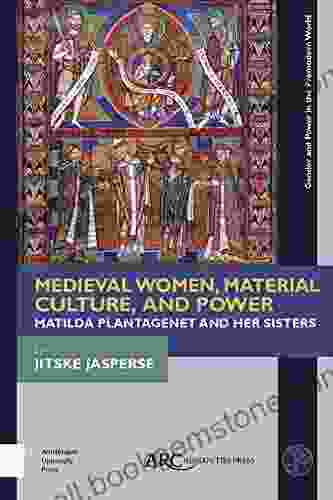
 Dennis Hayes
Dennis HayesMatilda Plantagenet and Her Sisters: Gender and Power in...
The lives of Matilda Plantagenet and her...
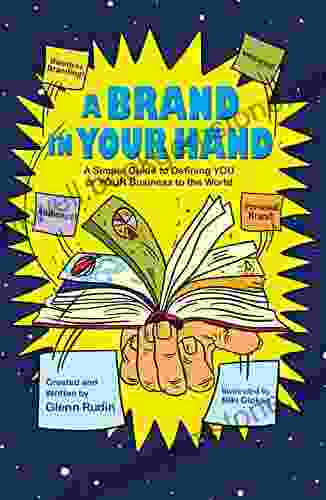
 Carl Walker
Carl WalkerA Comprehensive Guide to Defining Yourself or Your...
In today's competitive world, it's...
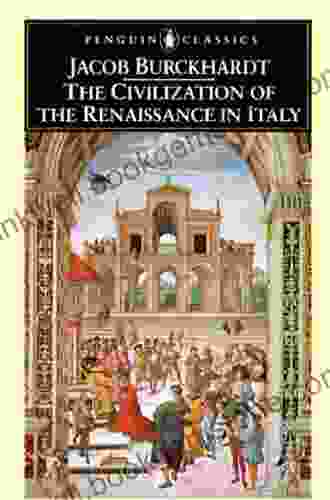
 Eliot Foster
Eliot FosterThe Civilization of the Renaissance in Italy: Classics,...
The Renaissance was a period of great cultural...
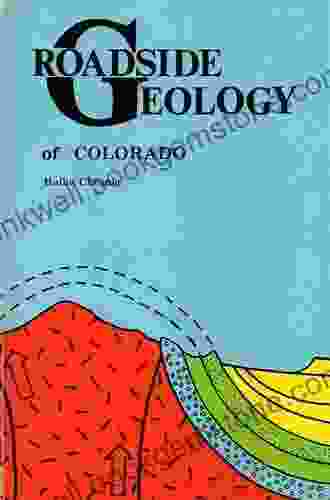
 Floyd Richardson
Floyd RichardsonUnveiling the Roadside Geology of Colorado: A Halka...
Colorado, a state renowned for its...
4.2 out of 5
| Language | : | English |
| File size | : | 567 KB |
| Text-to-Speech | : | Enabled |
| Screen Reader | : | Supported |
| Enhanced typesetting | : | Enabled |
| Print length | : | 258 pages |









